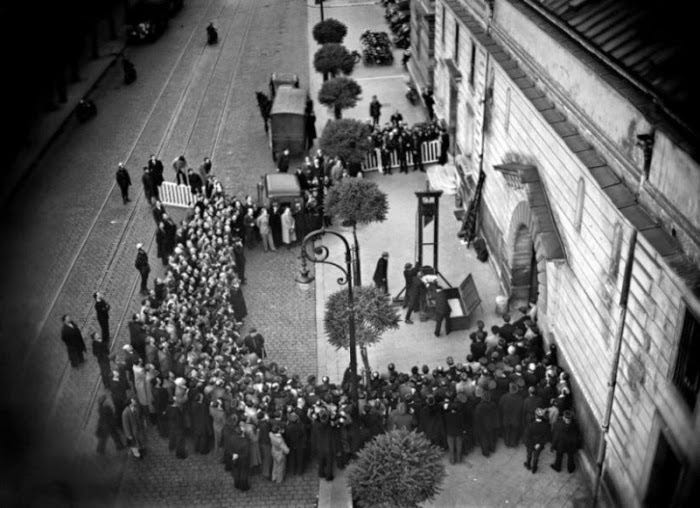
This week, like all of you, I watched Shaaban Ahmed al-Dalou burn to death while still attached to an IV drip outside Al-Aqsa Martyrs Hospital. Shaaban was 19, only two days from his twentieth birthday. He was a software engineering student who had been trying to fundraise online to evacuate his family into Egypt. His 38-year-old mother, Alaa, was also murdered alongside him, and as if this wasn’t awful enough, his 16-year-old brother Mohammed witnessed the excruciating deaths. He tried to save them, but others held him back, hoping that at least someone could make it out alive.
Still this horror continues. With thousands killed, will people remember Shaaban’s name? Will I remember it, with him joining the martyrs Hind Rajab, Mido Halimy, Aysal and Aser Abu Al-Qumsan and all these other people? The human mind is only capable of holding so many names, and I am so ashamed that my country has supported this malicious cruelty that turned souls into data, just bullets on a page.
At times, I feel I can hold onto hope because I know that Palestine will eventually be free. I know this is of no comfort to those currently suffering. But there is at least the hope that despite being up against extremely powerful structures who condemned Palestine to this fate, when regular people around the world were able to access correct, true information, they are choosing humanity over the narrative they’re supposed to believe.
I know it feels like it doesn’t matter, because the genocide still continues. But global support will only grow. Pro-Palestine protests will get bigger, their voices will grow stronger. Though the empire may try to prevent it, restrictive laws cannot win public opinion back. Palestine eventually will be free, and this is an indication that while evil people are still very powerful, in terms of numbers, they are still a minority. The hearts of most people are generally good.
But while this is comforting, it is not enough. Because while an anti-genocide stance seems like the least controversial opinion one can have, systems of power twist reality and shape it their liking. They will do their best to fight public opinion.
So let us watch out for their tactics. This is always how authoritarian governments do it. To attack ideas and movements, they must attack the people providing the ideas. They do this in a variety of ways, and we would do well to watch out for these strategies in the coming months as they ramp up in intensity in their opposition of dissent:
1. Characterizing dissenters as traitors or foreign agents

Authoritarian regimes must depict critics as disloyal, or loyal to other foreign powers. This makes the concerns of dissenters look illegitimate, and can isolate them from the rest of society. This happened for example in the Soviet Union during the Great Purge of 1936-38, where dissenters were accused of being foreign agents. In America, McCarthysim in the 1950s conversely had people being accused without evidence of being communist sympathizers during the Red Scare. We can detect similarities in our current culture right now. Those in the West that criticize their leaders and governments for supporting genocide are currently being accused of being Russian agents, pro-Hamas, or pro-Hezbollah rather than pro-peace, anti-genocide, or pro-human rights. If you accuse people of supporting foreign causes, after all, it takes attention away from the fact that what you are actually criticizing is your country’s foreign policies, which is a democratic right.
2. Dehumanization and demonization

Dissenters must be characterized as dangerous and as an element of society that must be purged. Adolf Hitler’s regime for example demonized Jews and political dissidents by portraying them as a threat to national unity. If dissenters are characterized this way, repression of them can be excused, as the public will have no sympathy for them. This is why in Canada, peaceful anti-genocide protests get barely any coverage or representation in our media, but as soon as there is a sign of an uncommon, radical stance, the media will jump on it. Canadian media jumped like crazy all over a protest by Samidoun for burning a Canadian flag, when this is the only example out of hundreds where I have seen this done. Similarly, in the UK, headlines about a largely peaceful pro-Palestine protest of 300,000 people selected rhetoric that drew attention to the arrest of 17 people. Despite this low percentage, this helps to characterize protestors as an evil force that must be stopped. If the West characterizes pro-Palestinian protestors as evil, anti-Semitic, sanctimonious, whiney terrorists, others will see them as those having temper tantrums rather than those trying to defend human lives.
3. Creating internal “enemies” and/or portraying dissidents as criminals or terrorists

Similar to above, authoritarian governments can either make up or exaggerate the presence of internal “enemies” because this justifies increased surveillance and repression. Dissenters are framed as threats to stability. In China in 1966-1976 for example there was the Cultural Revolution under Mao Zedong, who targeted intellectuals, teachers, and government officials under the excuse of protecting the revolution from “counter-revolutionaries” or “bourgeois elements.” In the UK right now examples of this can be seen where they are going after journalists who are anti-Zionist with the excuse of being “anti-terrorist.”
4. Manipulating the idea of nationalism and patriotism

Authoritarian leaders will treat you like you hate your own country if you criticize their policies. They will tell you that you are undermining your country’s progress because they are attempting to create an equivalency between loyalty to your leader/government and loyalty to your country. In fascist Italy for example, Benito Mussolini would promote the idea that dissent was an attack on Italy’s national glory. When Yugoslavia began to disintegrate in the 1990s, nationalist leaders like Slobodan Milošević in Serbia would call people who criticized his agenda “anti-Serb.” This is another reason why Canadian media likely jumped on the burning the Canada flag thing—it is an easy way to portray the entire anti-genocide cause as being unpatriotic to Canada. I won’t defend the flag burning, but this one incident and this one group should not stop you for fighting for Palestine, as it is in fact patriotic to fight for your country to hold on to some sense of morality by opposing genocide.
5. Censorship and media control
If media limits alternate viewpoints, dissenters cannot reach a wider audience, meaning regimes can design whatever narrative they want. This is a topic that many of us have discussed extensively, as the emergence of social media and the internet created a free press that led to this information war. The West has been cracking down on social media platforms and CEOs to warn them to stay in line and has been framing young people as disseminators of “misinformation” who cannot be trusted to correctly evaluate information and thus threaten the stability of their countries. Here’s even more information about how they are (trying to) control the narrative about the genocide. The control of propaganda and information is a strategy has been used throughout history by countless authoritarian regimes all over the world such as in Nazi Germany, the Soviet Union, Communist China, and North Korea. The West is under the illusion that we are the only ones in the world that aren’t constantly fed propaganda from their governments. But we were wrong.
6. Exemplary punishment
If the state makes examples of dissidents through public trials, executions, or imprisonment, people will be dissuaded from joining the punished and will not oppose the regime. This is done to instill fear. Public executions, purges, and imprisonment have been used by governments in history such as the Khmer Rouge’s Reign of Terror in Cambodia (1975-1979), executions and imprisonment in Nazi Germany such as of the White Rose Resistance Group (1943), and the Reign of Terror in France (1793-1794). This is a scary one to compare to our current contemporary situation. I hope things will not get this far. But as discussed above, punishment and imprisonment for the pro-Palestine position has begun in Britain.
I don’t write any of this to scare anyone. Things may never get as far as the most intense forms of exemplary punishment. If public support grows large enough, they hopefully will just throw in the towel. But before this happens, it may be helpful to be aware of strategies used before in history, so that we know the consequences of authoritarianism getting any worse.
Thank you for reading. If you like my writing and want to support me, please consider subscribing to my newsletter or sharing this article. Thank you!
Articles and writers I’ve been reading on Substack:
Has Hezbollah just tried to kill Netanyahu? by Ismaele
The Horrors of Gaza Won’t End Until Liberals Admit Biden and Harris Are Lying About ‘Ceasefire Talks’ by Adam Johnson
They never came for me, because I was not a real journalist by Jonathan Cook
US Can't Decide if Israel Is Blocking Aid – But It'll Send Bombs Either Way by Prem Thakker
Journalism 101: Tips for journalists reporting IDF assaults by Amr Rageh
New UN Report Shows: We Are Dealing With History's Most Evil People by Bettbeat Media
It Is Officially Illegal To Criticize Israel In The UK by The Dissident
He chooses the night… to unleash a crime that echoes with horror! by Mohammed Mohisen



